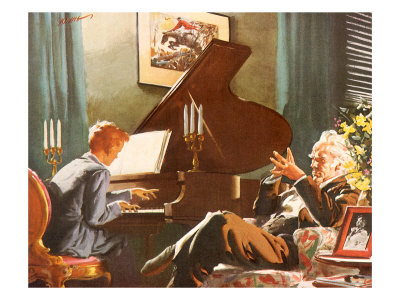From a study by David Husser:
The article focuses on how piano teachers can make piano lessons attractive to potential students and maintain their interest in music. Piano teachers are faced with the difficult task of enticing new students because of their negative perception of learning music brought about by an inherited dislike for classical music. The author suggests that piano teachers need to stop using the terms “classical” and “popular,” for labeling music as it tends to alienate a particular segment of potential students. Another point to consider is to remove any association between styles of music and styles of learning, so as to show the student that there are different ways in learning and performing music.
I respectfully suggest that there is another way to make piano lessons attractive to potential students and maintain their interest in music. I do not have problems attracting students who wish to play classical music, nor in interesting them in different kinds of classical music.
I simply ask them to listen to a wide variety of classical music, and tell me the composers they like. Once the students begin discovering how much music (including familiar tunes) falls within the “classical” category, they begin to become excited about the possibilities. Of course, that requires an immense familiarity with music history and literature, and with the piano (or other instrumental or vocal) repertoire on the part of the teacher, and so I believe the problem lies in piano teachers’ general unfamiliarity with classical music outside of the mainstream. Fortunately, there are many sources available for exploring classical music online, and so this problem can be easily remedied. And yes, I have the students who want to play popular pieces, too, and so with a little instruction in theory, they are able to play popular pieces when desired, but they understand that popular forms are modeled on classical forms, and by mastering the classical forms, they can also master the popular forms.
Another possibility is simply to expose children to enough classical music that they will find something they like, and thus overcome their “inherited dislike for classical music,” much as children learn to eat broccoli at dinner.
